Children & Parenting
10 Foods to Increase Your Child's Brain and Memory Power

Nutrition plays an important role in healthy brain growth and function, especially for younger children. Paediatricians believe that the brain develops more quickly in the first 1,000 days than at any other time in a person’s life. Food plays an important role, providing the fuel that drives healthy brain development.
If you have children, it is important to know what foods you can feed them to ensure they’re well-nourished. As your child continues to grow and reach adolescence, their brain continues to develop, particularly in the prefrontal cortex of the brain. This area is associated with memory, decision making, and other executive functions.
In this article, we provide a list of 10 foods that can help to boost your child’s brain and memory power.
1. Seafood

Fish and seafood are great food options for children. They provide a good source of protein, omega-3 fatty acids, zinc, iodine and minerals. These nutrients are essential for healthy brain function, and can also be incredibly important for the body.
Zinc, for example, is needed for nerve cell production and overall development, while omega-3 fatty acids help support normal brain development. Iodine is needed for thyroid hormone production, which also helps regulate healthy brain function.
Dieticians also believe that seafood such as fish may result in improved cognitive ability in children and teenagers. Research also suggests that eating fish can boost mental acuity and brain health, owing to the high omega-3 fatty acid content.
2. Wholegrains
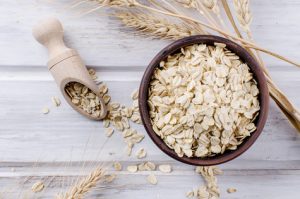
Wholegrains, such as oats, barley, and quinoa contain vitamin B that serves to reduce inflammation in the brain. B group vitamins also assist in the production of neurotransmitters, which are crucial for auditory attention and overall cognition. This could potentially help to support memory retention and also aid your child’s learning ability in school.
The brain cannot work without energy, just like every other organ in the body. Wholegrains that have a low glycemic index will provide your brain with a steady supply of energy, releasing glucose slowly into the bloodstream. Unlike refined carbohydrates, this keeps your child mentally alert throughout the day without sudden spikes in blood sugar level.
3. Eggs

Eggs are known to be one of the most nutritious foods you can eat, as they are packed with nutrients that play a key role in brain development and cognitive function. This includes choline, vitamin B12, protein, and selenium.
Choline is especially important for brain development, as it is needed for the production of acetylcholine, a neurotransmitter responsible for regulating memory, mood, and intelligence. Moreover, choline is needed for the processes that synthesise DNA. It is therefore unsurprising that choline intake has long been associated with improved brain function.
Medical research has linked choline intake to better memory, processing and attention-holding capacity.
4. Cocoa

Raw cocoa is rich in a phytonutrient known as flavonol. Flavonoids present in cocoa powder used in chocolates have been shown in numerous research studies to improve blood flow to the brain. This has the effect of increasing oxygen intake in the brain, leading to significant improvements in one’s mental state and focus.
Flavonoids also offer anti-inflammatory as well as antioxidant effects on the body. In fact, cocoa has a higher antioxidant capacity than green tea, black tea, or red wine.
In addition, cocoa also contains minerals such as magnesium, calcium, potassium, iron, copper, and zinc. These minerals are crucial for optimising brain function, preserving memory and supporting nerve cell conduction. Serotonin, a key hormone that stabilises your mood, is also found in cocoa.
5. Beans
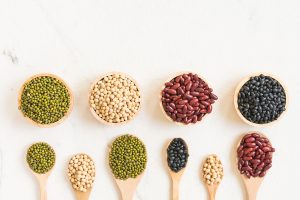
Beans contain a high amount of zinc, which is vital for brain development and growth in children. Beans also contain fibre and protein, which provides sustained energy and help keep you satiated for a longer period of time.
Navy and kidney beans are also high in ALA omega-3 fatty acids, which support brain growth and function.As a source of carbohydrates, they are converted into glucose during digestion which helps to fuel the brain. Brain functions such as thinking, problem-solving, memory retention, and learning are closely linked to blood glucose levels and how efficiently the brain uses the fuel source.
6. Lentils
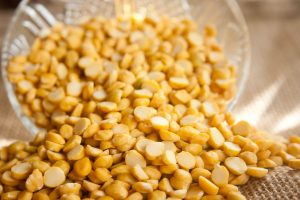
They may be small, but lentils are mighty when it comes to their health benefits.
Parents can consider including lentils in your child’s diet. Lentils are packed with B vitamin folate, which has been shown to boost cognitive performance. This vitamin also plays a key role in decreasing levels of amino acid homocysteine, which helps support healthy brain functioning as your child grows older.
Lentils are also high in zinc, another mineral that is essential for healthy brain development and normal childhood growth. Additionally, they are also low in calories while being packed with minerals and vitamins, making them a nutritional powerhouse.
7. Nuts and Seeds
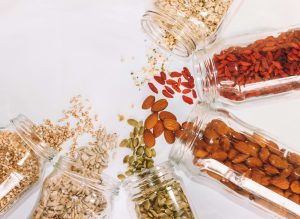
High in protein and essential fatty acids, nuts and seeds contain many nutrients linked to improved cognitive function. They also contain vitamin E, B group vitamins, iron and zinc, which are known to be important for healthy brain function, helping children grow, develop and learn.
Nuts and seeds contain unsaturated fats which can improve your blood cholesterol levels and relax your blood vessels. These help to contribute to lower stress levels and can translate into better heart health as well as cognitive health.
In particular, walnuts, which are high in alpha-linolenic acid (ALA), have been linked to better brain health and lower blood pressure.
8. Turmeric

Widely known for its anti-inflammatory properties, turmeric is one of the superfoods in the world. Many cultures dating back to history have reported using turmeric as an essential food ingredient because of its healing properties.
Turmeric is also regarded as an excellent spice because of its positive effects on the brain. Turmeric can also help the developing brain of children and boost their learning ability in class.
9. Leafy Greens

It may be challenging to get your child to eat their leafy greens, but paediatricians often encourage parents to incorporate these nutritious vegetables into children’s diet, as they are good for the brain. Green leafy vegetables such as spinach, kale, and lettuce contain compounds that protect the brain cells. These include folate, flavonoids, carotenoids, and vitamins E and K1.
Just as leafy greens help to slow cognitive decline in older adults, they also help boost healthy brain function in young children and adolescents.
10. Berries
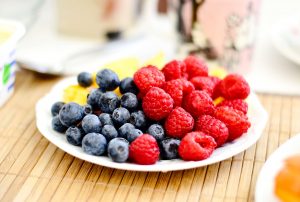
Berries contain antioxidant properties that boost your natural immune system and brain health. This includes strawberries, blueberries, and blackberries. In particular, berries contain flavonoids and beneficial plant compounds called anthocyanins.
Scientists have found anthocyanins to benefit the brain in many ways. For instance, they help increase blood flow to the brain, promoting the production of new nerve cells. They also have anti-inflammatory effects and assist with the expression of proteins such as brain-derived neurotrophic factor (BDNF), involved in learning and memory retention.
Overall, berry fruits containing high levels of antioxidants also help the brain stay healthy by protecting healthy cells from damage caused by free radicals.
Latest Articles
How Are Abdominal Hernias Treated?
What to Expect from Colorectal Surgery
How to Treat Breast Inflammatory Conditions
Gynaecomastia: Understanding Male Breast Cancer
Conclusion
While trying to incorporate these foods into your child’s diet, you may also find recipes to make them particularly tasty. This will encourage your child to eat more of these foods that keep their brain healthy and make the process more enjoyable.
At SOG, our team of paediatricians are able to provide developmental assessments (such as nutritional and growth advice during routine check-ups).
Speak to our SOG paediatricians today to find out more: https://www.sog.com.sg/specialist_cat/paediatrics/
WHO WE ARE
About SOG Health Pte. Ltd.
Established in 2011, SOG Health Pte. Ltd. (“SOG”) is a leading healthcare service provider dedicated to delivering holistic health and wellness services to the modern family.
With a long and established track record in Singapore providing Obstetrics and Gynaecology (“O&G”) services such as pre-pregnancy counselling, delivery, pregnancy and post-delivery care, the Group has since further expanded its spectrum of healthcare services to include Paediatrics, Dermatology, and Cancer-related General Surgery (Colorectal, Breast & Thyroid).
The Group’s clinics, under its four operating segments of O&G, Paediatrics, Oncology and Dermatology, are strategically located throughout Singapore to provide easy access to its patients.
- Obstetrics
- Gynaecology
- GynaeOncology
- Breast, Thyroid & General Surgery
- Colorectal, Endoscopy & General Surgery
- Dermatology
- Paediatrics
Consult With A Specialist From SOG
Visit one of our specialists today to learn more about your health!
Recommended Specialists
Book An Appointment
Fill up this form and our clinic will get back to you shortly.
For general enquiries, please click here.




